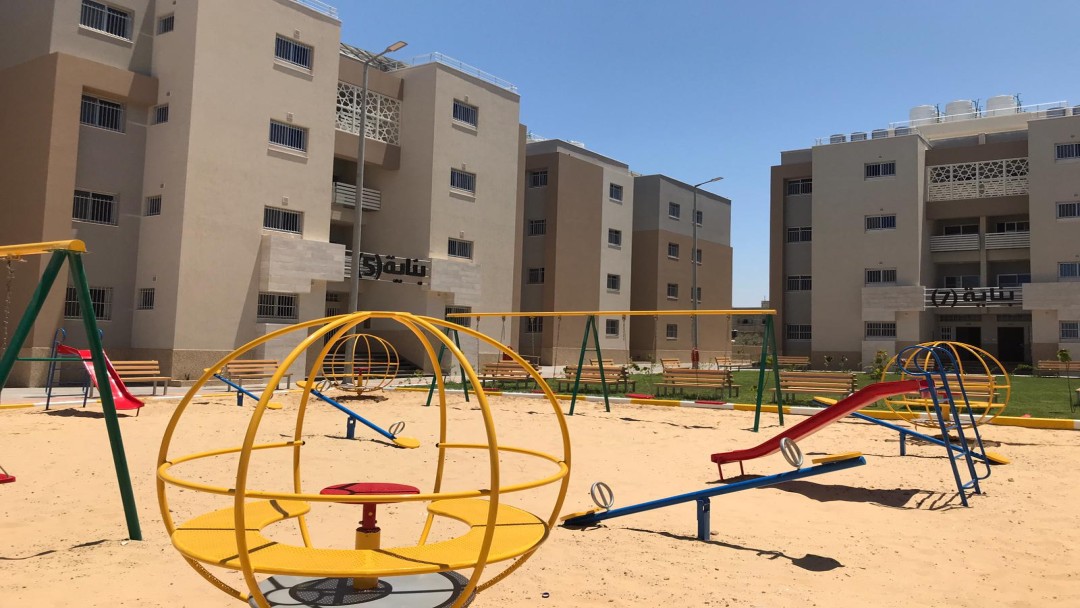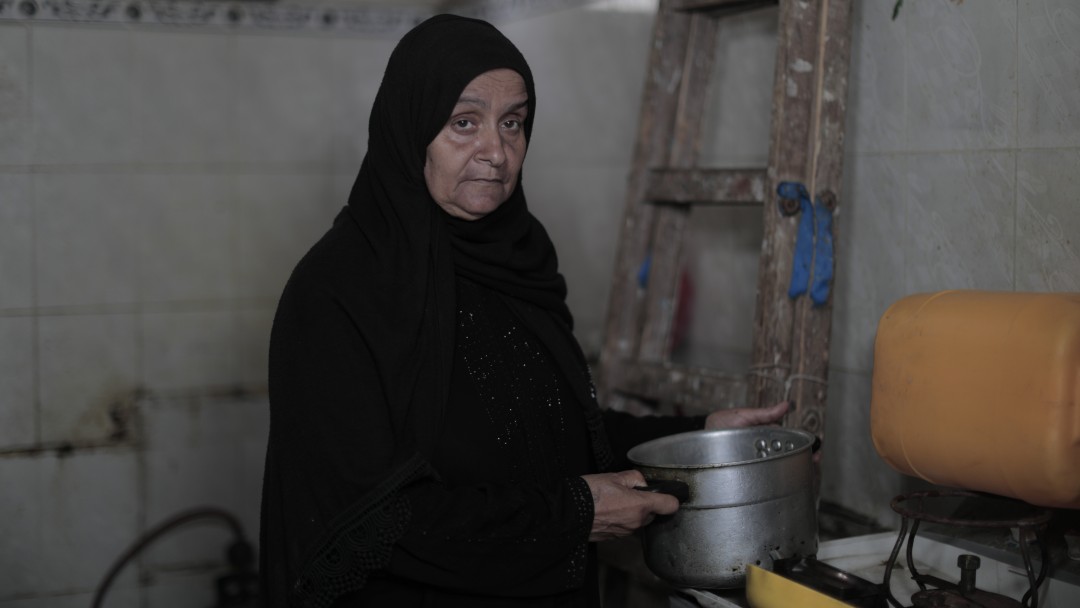Under the FC regional programme Palestinian Refugees in the Middle East (REPAC), participatory projects are implemented to improve the social and economic infrastructure in Palestinian refugee camps in the Middle East. The programme, which KfW finances on behalf of the BMZ (Federal Ministry for Economic Cooperation and Development), is implemented in cooperation with the United Nations Relief and Works Agency for Palestine Refugees in the Near East (UNRWA). One focus of the measures, which are determined through a participatory selection process, is to improve housing and living conditions through investment in public infrastructure and (re)construction of housing. A success story can be reported from Deir-el-Balah camp south of Gaza City.

With about 2 million inhabitants on 365 km2 - about 5,800 people per km2 - the Gaza Strip is one of the most densely populated areas in the world. 1.4 million residents have been living in the Gaza Strip as UNRWA-registered refugees for more than 70 years. Their living situation is shaped by the 16-year blockade by Israel and the ongoing conflict situation. 58% of those living in Gaza are dependent on humanitarian aid.
The recurrent violent outbreaks have a negative impact on the housing situation in Gaza. During the August 2022 escalations, for example, 1,500 housing units were damaged or destroyed. In addition, the socio-economic crisis situation, which has been ongoing for years, is also worsening housing conditions - while the population is steadily increasing, further limiting the already scarce housing space available. More than 21,000 existing housing units in the Gaza Strip do not meet the minimum requirements for living space, hygiene standards and privacy.
With the financial support of Germany and KfW, UNRWA developed a needs-based and participatory approach under REPAC to address the multiple crises - especially the housing crisis - in the Gaza Strip.
Also the smallest refugee camp, Deir-el-Balah, is affected by the housing crisis. The camp is overpopulated, many houses are not connected to the electricity and water network, and hardly any sunlight penetrates the narrow and partly unpaved streets.
Under the ninth project phase of the REPAC programme, these conditions are addressed through a participatory camp development plan. Dilapidated houses are demolished to make way for wider and paved roads and pavements as well as open spaces. Families from the demolished houses are resettled in newly built multi-storey residential buildings as part of a voluntary Relocation Action Plan (RAP). In addition, the construction work is creating important jobs in a region that recorded an unemployment rate of over 45% in 2022.
In Deir-el-Balah, one of the main streets was widened and made more pedestrian-friendly, and ten open spaces were created. For this, a total of over 150 families were resettled, for whom 13 multi-storey residential buildings with over 150 flats were built. The UNRWA film impressively shows the improved quality of life of the families in their new homes.

Among the resettled families is Khader Thabet with his wife, three children and four grandchildren. Khader is 77 years old and worked as an Arabic teacher in the United Arab Emirates for 40 years. With his retirement, he returned to Deir-el-Balah camp. However, his family's former house had become uninhabitable. "When I first entered our house, I was shocked. Obviously no human being can live under such circumstances," he describes the situation. Since there was not enough money for rent, the Palestinian refugee family stayed with relatives for a short time. With the resettlement and the construction of the multi-storey houses under the REPAC project, Khader and his family also got their own flat. "After years of flight and displacement, I can finally feel comfortable and enjoy the last years of my life in a place I can call home," he says with a satisfied smile.
Share page
To share the content of this page with your network, click on one of the icons below.
Note on data protection: When you share content, your personal data is transferred to the selected network.
Data protection
Alternatively, you can also copy the short link: https://www.kfw-entwicklungsbank.de/s/enzBtDOX
Copy link Link copied